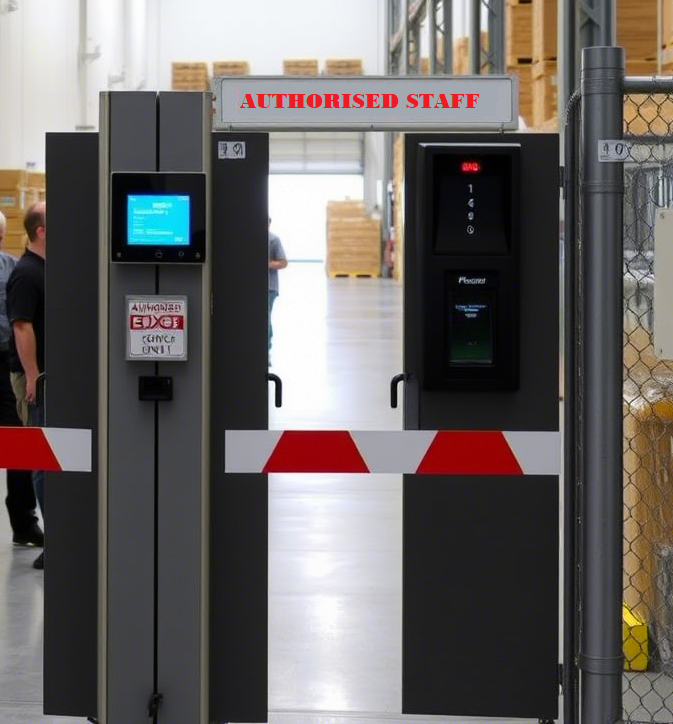
Retail Sustainability: A Guide for South African Businesses
In today’s rapidly changing world, sustainability is no longer optional—it’s a business imperative. For retailers in South Africa, embracing sustainable practices isn’t just about meeting consumer expectations; it’s about safeguarding the environment, fostering social responsibility, and ensuring long-term profitability. As a nation rich in diversity and resources, South Africa has a unique opportunity to lead the way in creating a retail landscape that prioritizes people, planet, and profit. Here’s how retailers can integrate sustainability into their operations.
Why Sustainability Matters in Retail
The retail sector plays a pivotal role in shaping environmental and social outcomes. From production and packaging to transportation and waste management, every aspect of retail leaves an impact. Unsustainable practices—such as excessive plastic use, unethical labor conditions, or inefficient energy consumption—can harm ecosystems, deplete resources, and damage brand reputation.
By adopting sustainable practices, retailers can reduce their environmental footprint, build trust with consumers, and position themselves as leaders in ethical commerce. This shift isn’t just good for the planet—it’s also good for business.
How Retailers Can Embrace Sustainability
Here are practical steps retailers can take to create a more sustainable operation:
1. Adopt Eco-Friendly Packaging
Plastic pollution is a growing crisis in South Africa, with landfills at capacity and litter affecting wildlife and water systems.

Retailers can make a significant impact by switching to biodegradable, recyclable, or reusable packaging. Encourage customers to bring their own bags or containers by offering discounts or incentives for sustainable choices. Partner with suppliers who prioritize minimal and eco-friendly packaging to further reduce your footprint.
2. Implement Energy-Efficient Solutions
Energy consumption is a major contributor to greenhouse gas emissions. Retailers can reduce their carbon footprint by adopting energy-efficient technologies such as:
- Installing solar panels to power stores.
- Using LED lighting and energy-saving appliances.
- Implementing smart systems to monitor and optimize energy usage.
These changes not only benefit the environment but also lower operational costs over time.
3. Minimize Waste Through Circular Practices
Waste reduction should be a top priority for sustainable retailers. Consider implementing:
- Zero-waste policies to minimize discarded materials.
- Donation programs for unsold goods to support local communities.
- Recycling initiatives to responsibly dispose of packaging and other waste.
- Upcycling or repurposing products to extend their lifecycle.
By adopting circular economy principles, retailers can turn waste into value and set an example for the industry.
4. Source Ethically and Locally
Sourcing products ethically and locally reduces the environmental impact of transportation while supporting South African artisans, farmers, and manufacturers. Look for fair trade certifications and partner with suppliers who share your commitment to sustainability. Highlight these partnerships in your marketing to build trust and differentiate your brand.
5. Leverage Technology for Sustainability
Technology can play a key role in driving sustainable practices. Retailers can:
- Use AI and data analytics to optimize inventory management and reduce overstock.
- Implement digital receipts to cut down on paper waste.
- Offer virtual consultations or online tools to help customers make informed, sustainable choices.
By integrating tech-driven solutions, retailers can streamline operations while reducing their environmental impact.
6. Engage in Community and Environmental Initiatives
Retailers have a unique opportunity to give back to the communities they serve. Consider partnering with local NGOs, environmental organizations, or community groups to support causes like tree planting, beach cleanups, or skills development programs. These efforts not only contribute to sustainability but also strengthen brand loyalty and trust.
7. Be Transparent About Your Efforts
Consumers increasingly value transparency. Share your sustainability journey openly by:
- Publishing annual sustainability reports detailing your progress.
- Highlighting green certifications or awards your business has earned.
- Educating customers about the positive impact of their purchases.
Transparency builds credibility and encourages others in the industry to follow suit.
The Business Case for Sustainability
Sustainability isn’t just a moral obligation—it’s a strategic advantage. Retailers who embrace eco-friendly practices often see benefits such as:
- Increased customer loyalty and brand advocacy.
- Cost savings from reduced energy and waste management expenses.
- Access to new markets and partnerships with like-minded organizations.
- Enhanced reputation as a leader in ethical commerce.
By embedding sustainability into your core business strategy, you can future-proof your operations and stand out in a competitive market.
Leading the Way in Sustainable Retail
South Africa’s retail sector has the potential to become a global model for sustainability. By adopting innovative practices, supporting local communities, and protecting natural resources, retailers can create a positive impact that extends far beyond their stores. Whether you’re a small boutique or a large chain, every step toward sustainability counts.



